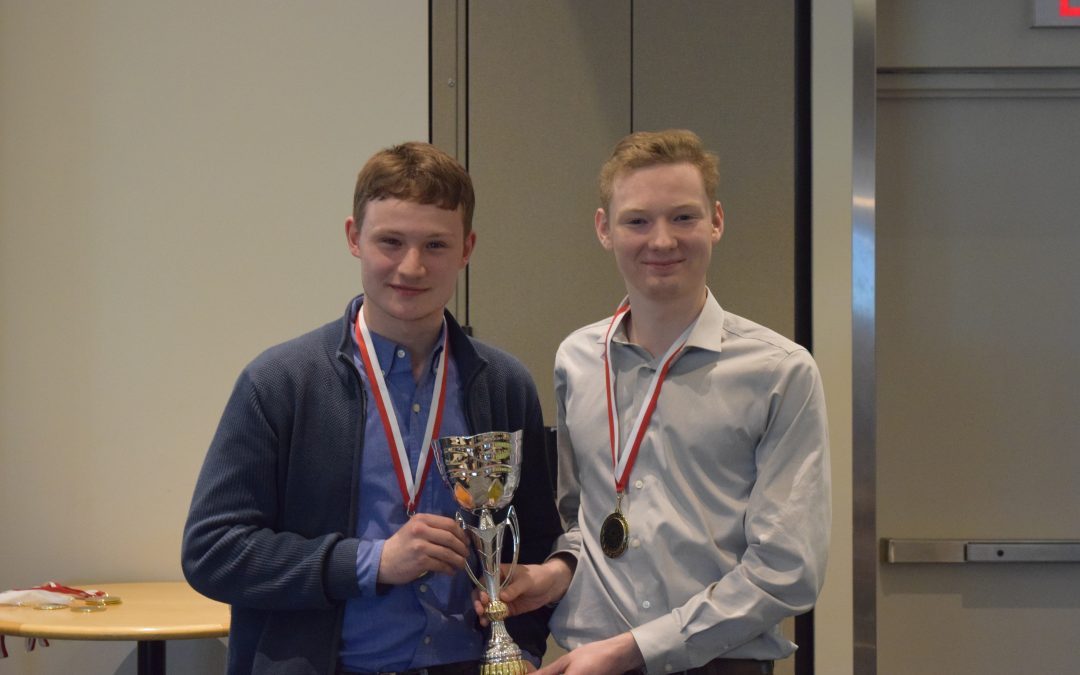TU20 Cup Winners Ben & Phil
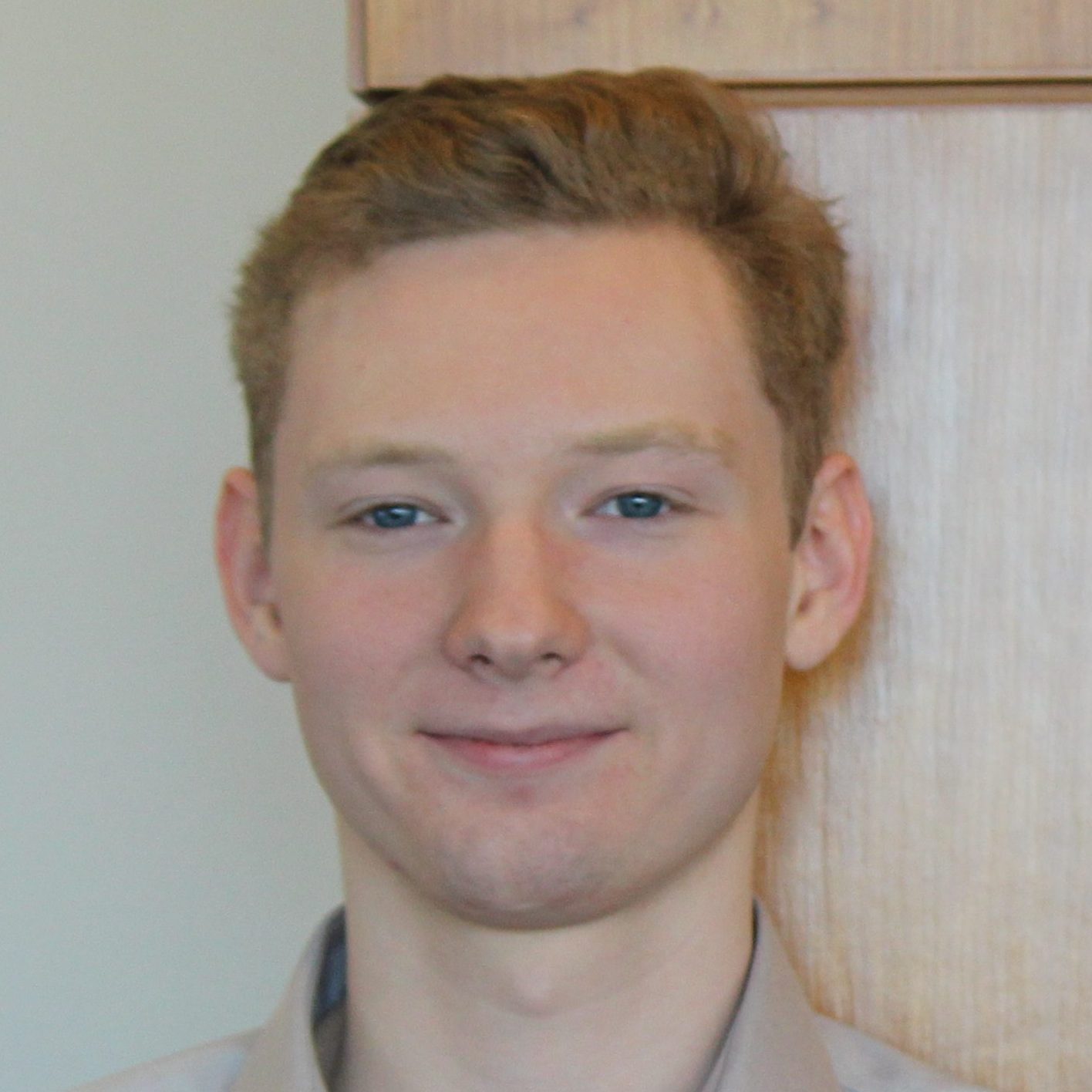
Ben Prystawski
TU20 Cup Winner | 1st Year U of T CS
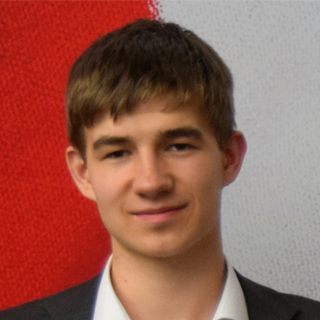
Denys Linkov
TU20 Lead | 3rd Year U of T CS

Phillip Christoffersen
TU20 Cup Winner | 1st Year U of T CS
Our second entry of the TU20 of the Month series features Team eventHost, winners of the TU20 Cup. I know, I know, it’s bending the rules since the article is about two people, but we didn’t have a February edition so, we’ll call it even?
Ahead, you will find the story of how Team eventHost worked on their idea, built their app, and eventually won the TU20 cup. Hopefully this gives you some more insight on what the TU20 cup was actually like, some of the ups and downs, and a couple laughs along the way. And without further ado, I shall hand it off to Ben and Phil !
– Denys
———————————-
Our journey with the TU20 Cup was long and winding, but ultimately an extremely enriching experience. This competition challenged teams of students to develop an app and a business plan to solve some problem related to smart cities. We both learned new technical skills and were exposed to the Greater Toronto startup community. Lasting over 2 months, and spanning many, many, many lines of code, we learned to build a project from the ground up, as well as make design and business decisions for our project, eventHost. It all started in a coffee shop on Bloor in January 2018.
We brainstormed for several hours, our heads full of caffeine and (to some degree) ideas. Our brainstorming all centered around one question: how is a city smart? What do we even mean when we ask ourselves how to make our cities smarter? Our ideas were divided into two different categories, corresponding to two different models of city intelligence. First, the centralized model of intelligence, which involves a central authority gathering information and using it to make decisions for the public. Secondly, we thought of the distributed model of intelligence, which favours information generation and sharing between people. If each resident of a city has more information available to them, they can make smarter decisions which make the city smarter in aggregate. We decided to go with the latter idea, because we did not want the success of our project to depend on the official approval of central authorities. Also, the ideas using this centralized model were more complicated and could more easily be done directly through government, so we saw little room for innovation from a startup we could realistically build. We ultimately resolved that finding a way to connect information directly to people was the way to go. But which information? And how?
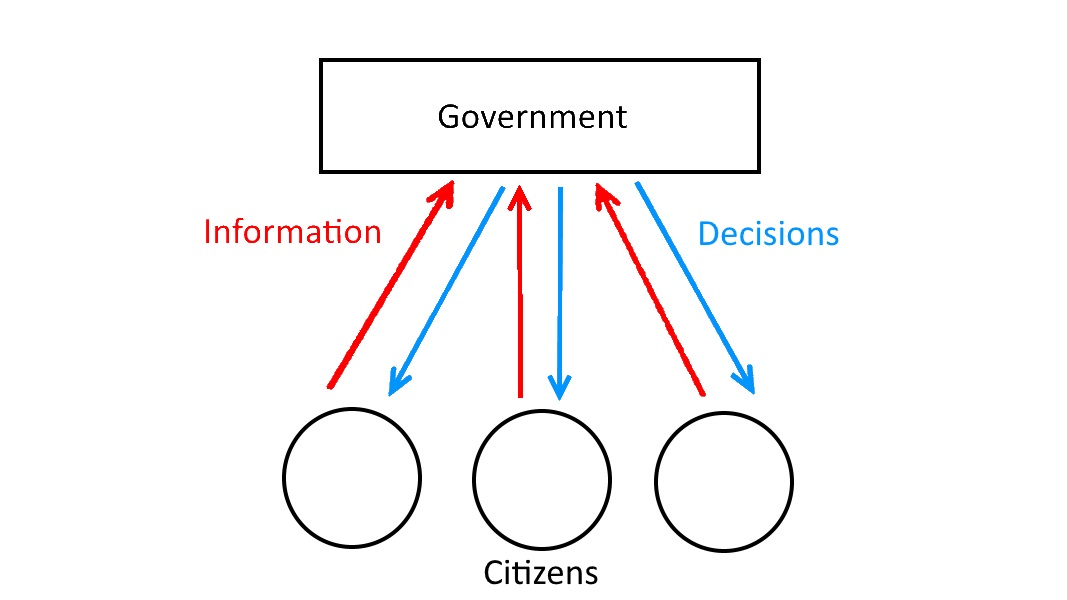
A centralized model of decision making
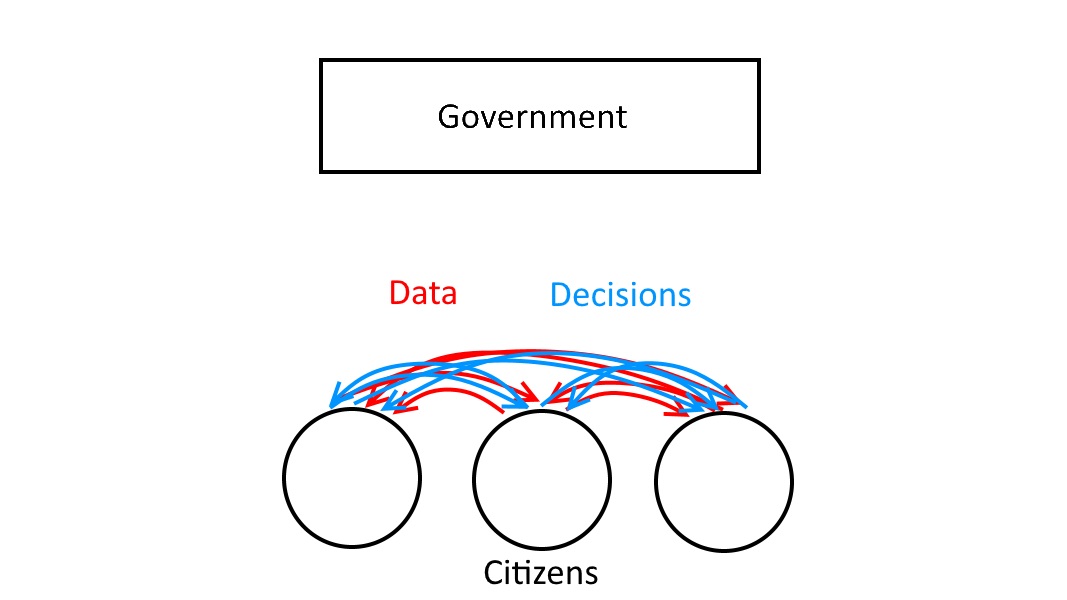
What if we just organized ourselves?
We eventually decided on eventHost, an event hosting platform tailored to finding small-scale events with little advance planning. The app consists of a simple list interface, along with Google Maps integration, to facilitate spontaneous event planning. It gives a list of events sorted by proximity which can be searched or filtered by category. Further, only current or very shortly upcoming events are displayed, to increase the salience of displayed events. In the short run, people would be able to view events, filter them by category, and search by event title. We are also planning on sorting the event list in a much more sophisticated way, using data based on recent search history, and also implementing native advertising and allowing users to pay to promote their events. We also plan to streamline the interface for advertising an event and finding a venue. This will make cities smarter by increasing the vibrancy and spontaneity of their communities.
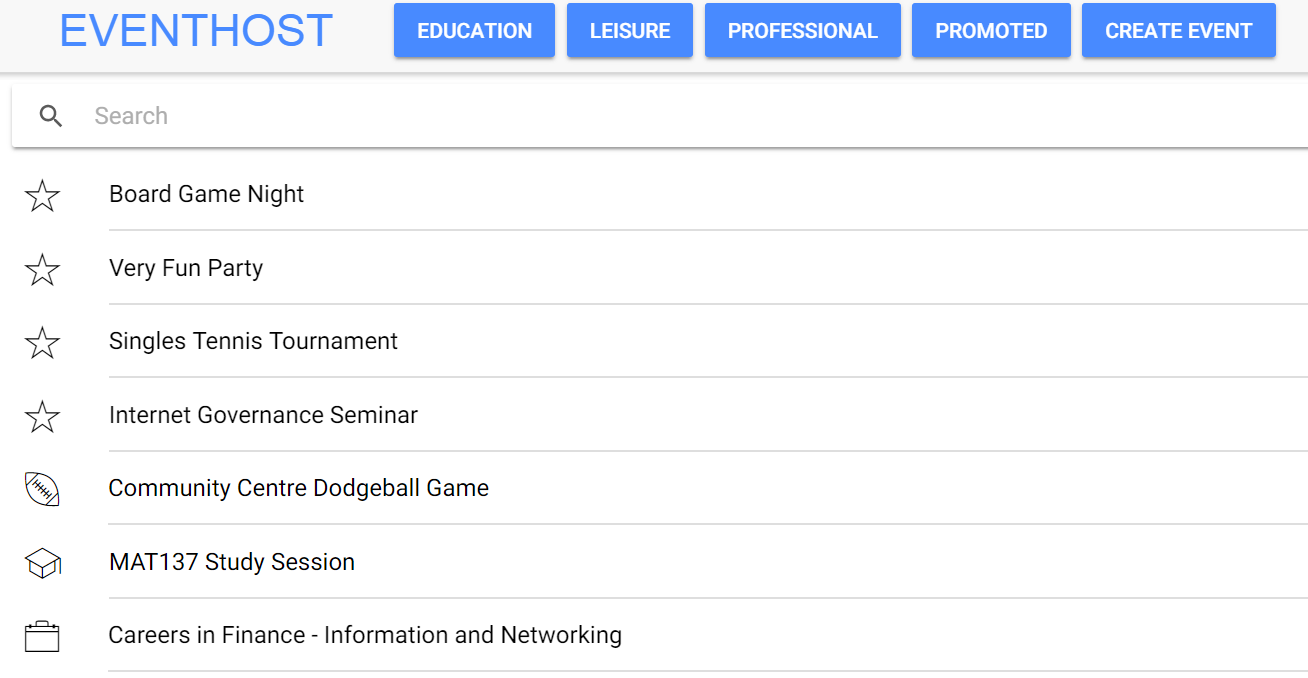
Our app!
We ultimately decided that a web and mobile app would be best suited to our intended purpose. However, neither of us were familiar with web and mobile development tools, so we asked our mentor, Spiffy founder Chris Snoyer, if he could recommend any tools to us. He recommended the Ionic framework, which let us program one app using JavaScript and run it on web browsers, iOS, and Android. After doing a bit of research on our own, we decided to use this framework. We both learned JavaScript as quickly as possible and began work on a prototype. Through weeks of late nights struggling with nodeJS packages, ripping our hair out over search bars, and spending way too much effort stressing over asynchronous geocoding, we managed to cobble together something resembling a functional prototype. We created a streamlined interface to view some sample events and create new ones.
Big thank you to our mentor, Chris Snoyer!
Unfortunately, “check out how cool this prototype is!” is not a convincing pitch for a business, so we needed to make a business plan and presentation. Chris’s help was invaluable in deciding how to turn our app idea into a financially viable business. In addition to our ideas of users paying to promote posts and taking a cut of ticket sales, Chris recommended we allow venues to advertise available spaces and rent them out to potential event hosts. He also had the idea of conducting market research by polling people about how frequently they look for events without much prior notice. Our research suggested that there was a significant market for an app like ours, which strengthened our pitch. Using this research and the business model we developed, we wrote a business plan and prepared a presentation. These described what our app does, the existing industry and how we are different, our business strategy, and plans for the future.
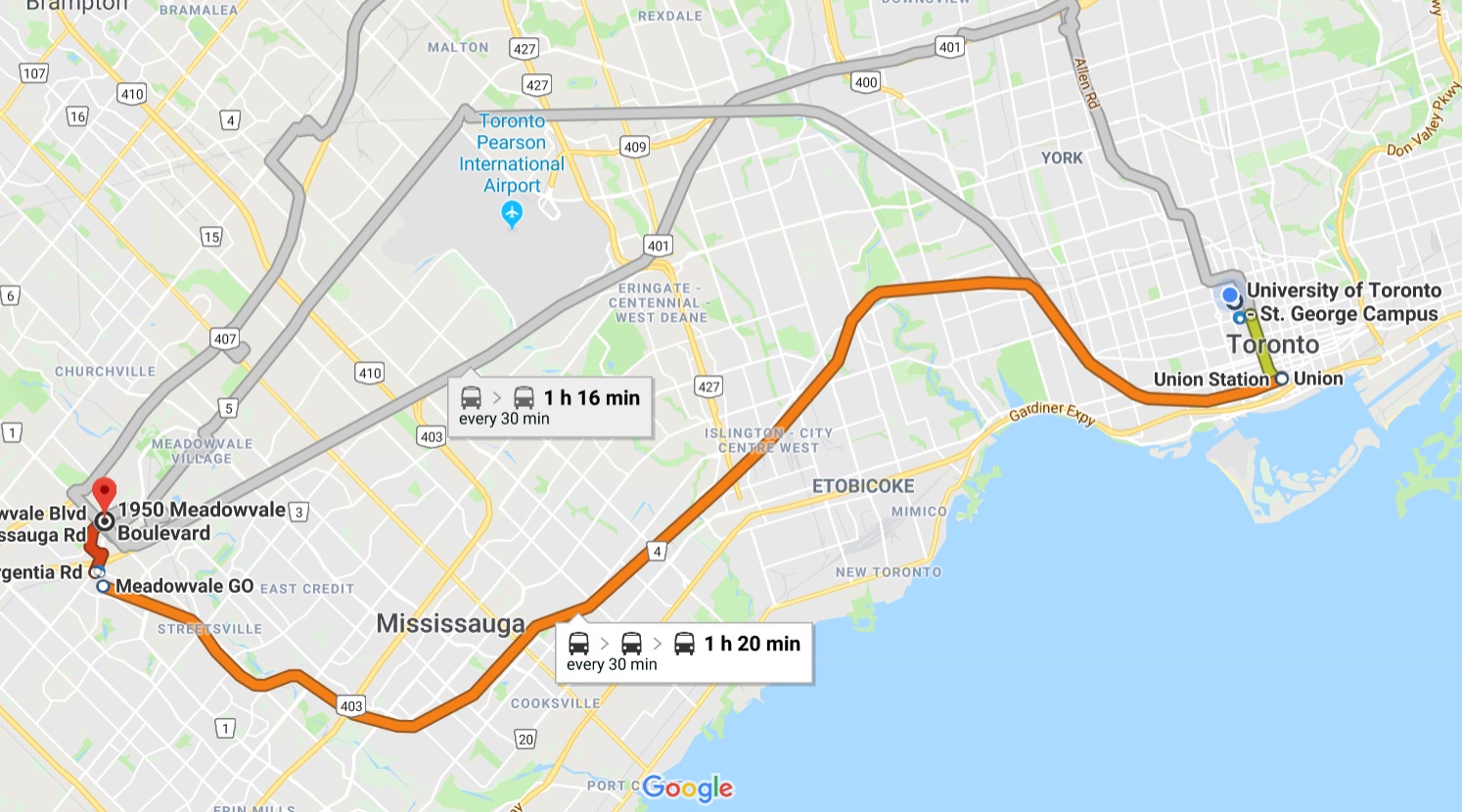
Follow the orange brick road to get to the TU20 Cup.
On the morning of March 3rd, we began the treacherous journey to the Microsoft headquarters in the distant land of Meadowvale. After frantically buying GO bus tickets, accidentally breaking our app and fixing it again on the bus, almost missing our stop, and trekking over the highway, we found our way into the guest entrance of the building. We signed in, got t-shirts and OneNote beanies, then desperately tried to get geocoding working before the event started.
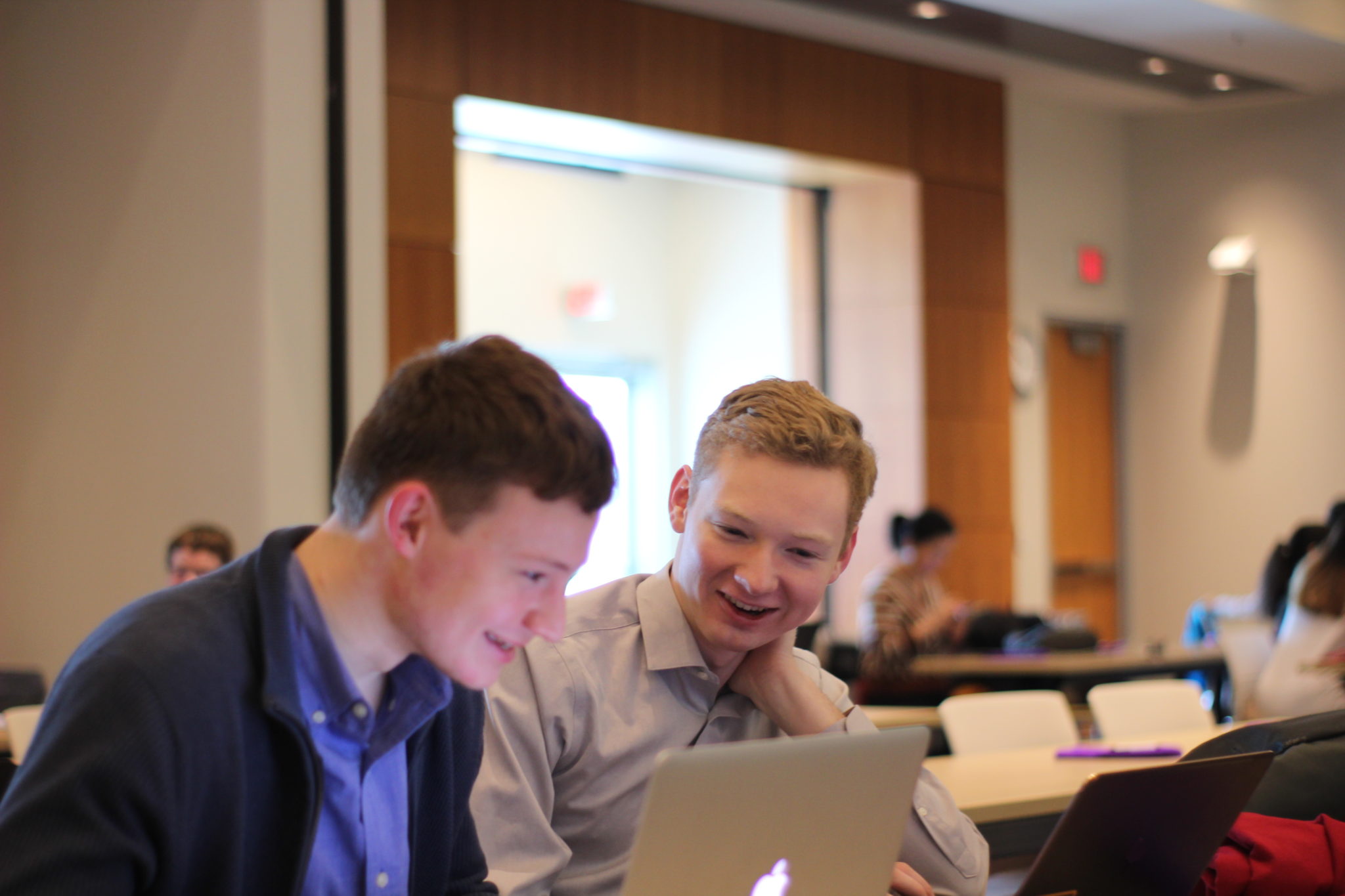
There was a little bit of time to have fun
The opening ceremonies consisted of Denys introducing the competition, a compilation of teams’ videos thanking their mentors, and a fascinating talk by Mike Branch, VP of Business Intelligence at Geotab. Mike explained how Geotab provides datasets based on telematics data from over one million devices in vehicles around the world. Cities use these datasets for pothole detection, cell coverage dark spot mapping, and other smart city applications. After Mike’s talk, we ate lunch and rehearsed our presentation for several hours, waving our hands about as we memorized our lines and ironed out our transitions.
Around 1:40pm, we were called into one of the pitching rooms to present, and suddenly learned that we did not, in fact, have five minutes to give our presentation and five more minutes to demonstrate our prototype, but five minutes to do both. We were not previously aware of this. Adjusting on the fly, we managed to fit our demo into our presentation, which was already barely within five minutes. After presenting, we talked with some of the other teams, napped for a bit, and waited to be told that we didn’t make finals and could go home.
To our surprise, our team was chosen of one of the two from our pitch room to make finals. We gave our presentation again in front of the whole audience and again, awaited the results. Surprising us again, Denys announced that we won the 2018 TU20 Cup! We were overjoyed with the news and are excited to work with TechIgniters, the local Accelerator program where we will be commercializing our idea. We took photos, then talked with judges and others involved in the organization of the event.
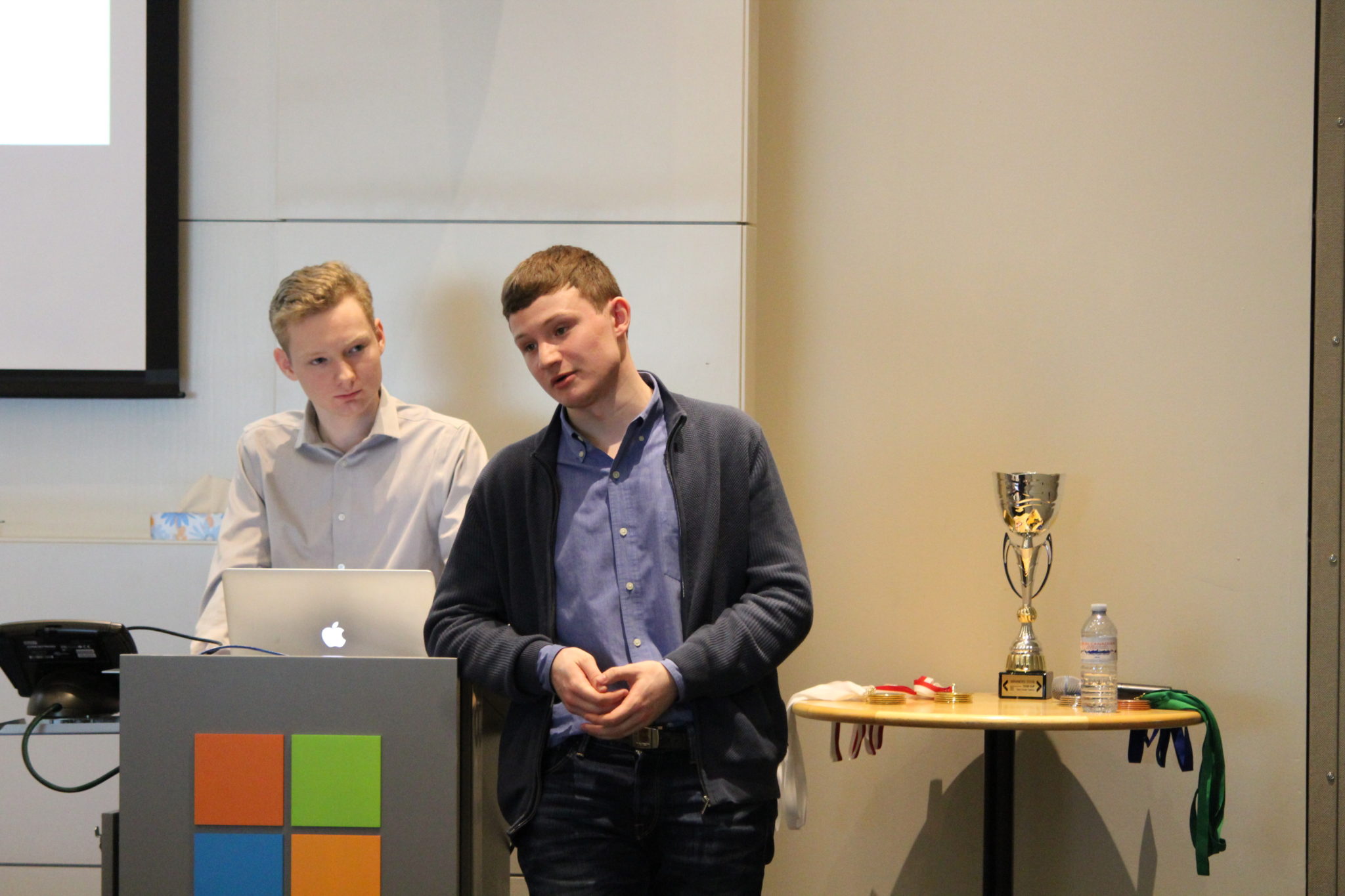
Answering some tough questions from the judges
After most people had left, it dawned on us that we didn’t actually have a plan for how to get home. The sad state of Mississauga transit meant that our only viable option was to take a 45-minute Uber back downtown to celebrate by burning our hands on bibimbap bowls.
We are extremely grateful for all the work that the TU20 cup organizers, judges, and sponsors put in to organizing this event. Developing our project was an incredible learning experience, teaching us new technical and business skills. We are also looking forward to building eventHost into a real business through TechIgniters’ 12-week incubator program.
———————————-
Thanks for your stories guys! It’s a little ironic that a team who didn’t focus on the transportation side of Smart Cities had such an issue getting home, but we won’t hold it against them. As mentioned, starting in May, the team June, the team will go through the TechIgniters program to attempt to commercialize their product. Similarly to the Cup, the team will face ups and downs, host many meetings and will hopefully emerge with some paying customers. This isn’t the end of the journey, so make sure to check back in the summer to see how they are doing!
– Denys
If you liked this series, please share with your friends & family! If you are interested in being featured in the series, please reach out to techunder20 [at] gmail [dot] com
